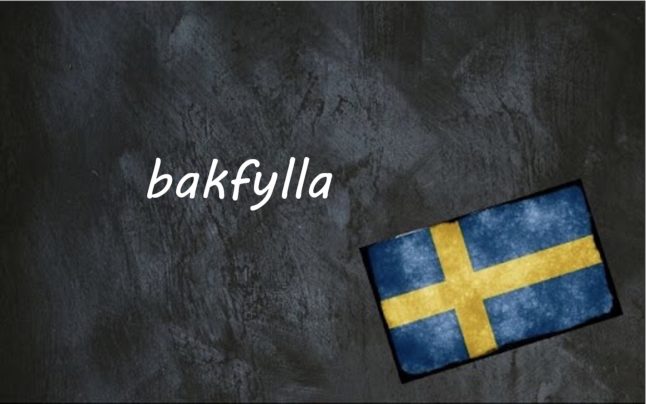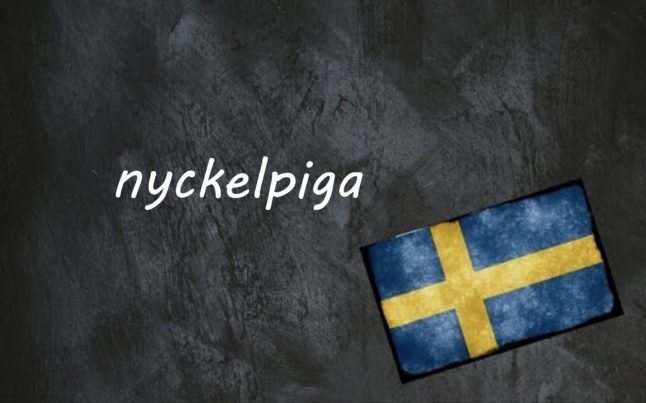Bakfylla is the Swedish term for a hangover; symptoms such as tiredness, headaches, and nausea that you may experience the day after drinking alcohol. You can also use the nouns baksmälla or bakrus.
Bak means ‘behind’, while fylla and rus are ways of referring to drunkenness or intoxication, and smälla means something like ‘to crash/bang/flop’, so the noun is quite literal in describing what follows a night of heavy drinking.
-
Don’t miss any of our Swedish words and expressions of the day by downloading our new app (available on Apple and Android) and then selecting the Swedish Word of the Day in your Notification options via the User button.
The adjective or adverb ‘hungover’ is bakfull or bakis. The latter can be used in compound nouns, such as bakismat or ‘hangover food’ (kebab pizza, anyone?). And yet another synonym for ‘hungover’ is betongkeps, which literally means ‘cap of cement’ and is a rather apt description for how your head might feel.
These different variants have been recorded in Swedish since at least the early 19th century. You may hear people describe themselves or others as bakfull som en örn (as hungover as an eagle), though we’re not entirely sure why. Presumably the person who coined it was too bakfull to come up with a more coherent comparison.
You can also use bakfylla as a metaphor to describe usually negative, unwanted consequences of a particular action, for example en bakfylla från den första matchen (a hangover from the first match) or en bakfylla från Gustav Vasas tid (a hangover from Gustav Vasa’s time).
Example sentences
Varför blir bakfyllan värre ju äldre jag blir?
Why do hangovers get worse the older I get?
Jag hade vaknat upp med världens värsta bakfylla.
I had woken up with the world’s worst hangover.
Villa, Volvo, Vovve: The Local’s Word Guide to Swedish Life, written by The Local’s journalists, is available to order. Head to lysforlag.com/vvv to read more about it. It is also possible to buy your copy from Amazon US, Amazon UK, Bokus or Adlibris.



 Please whitelist us to continue reading.
Please whitelist us to continue reading.
Member comments